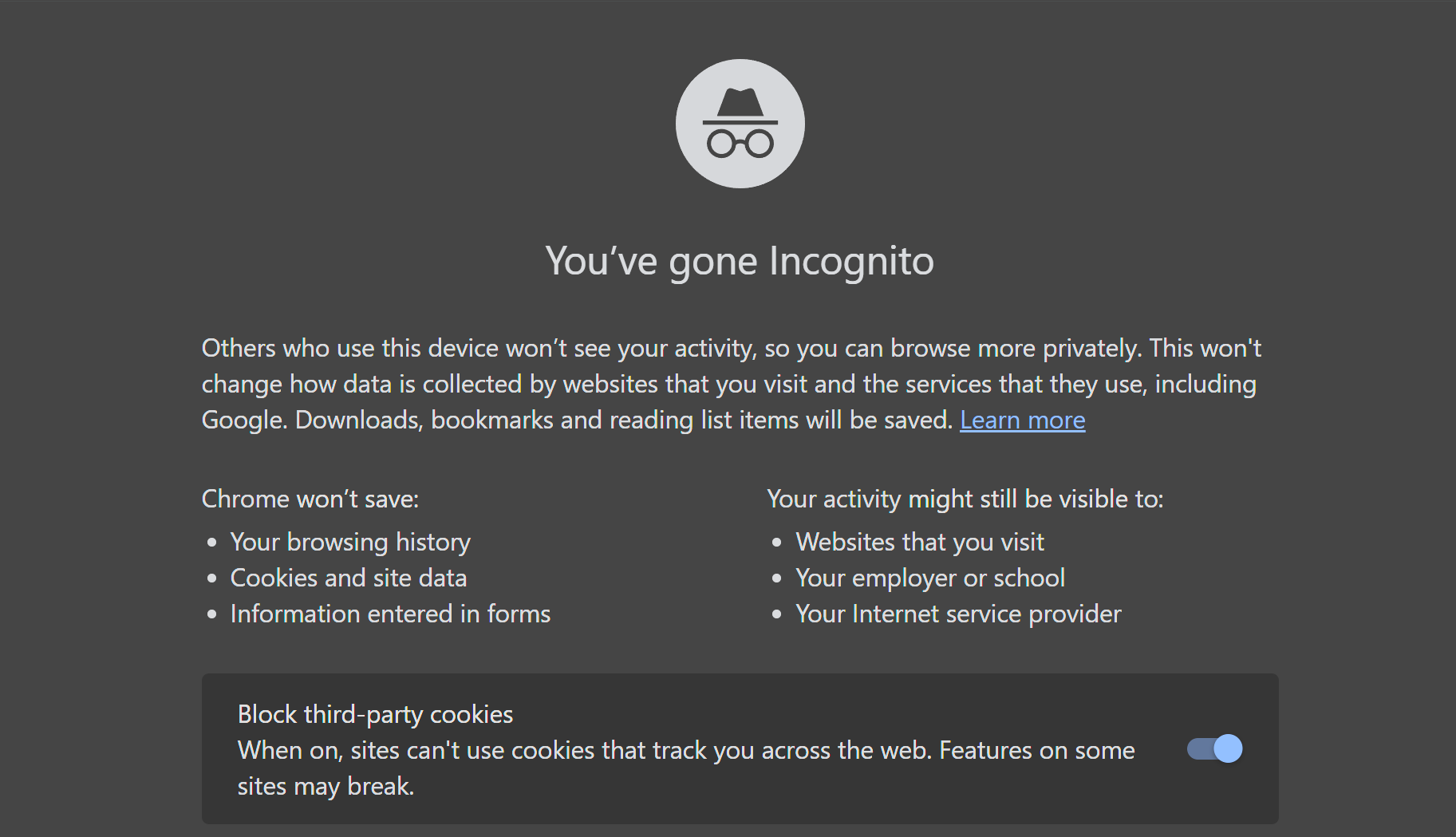What just happened? Google has agreed to delete browsing data that it collected from Chrome users who were in Incognito mode. The move is part of a settlement in a lawsuit that claims the company tracked people who assumed they were browsing the web privately by going Incognito.

In 2020, Florida resident William Byatt and California residents Chasom Brown and Maria Nguyen filed the lawsuit against Google. It accuses the tech giant of violating wiretap laws and claims that sites using Google Analytics or Ad Manager collected information from browsers in Incognito mode, including web page content, device data, and IP address. Google is also accused of taking Chrome users' private browsing data and associating it with existing user profiles.
It's alleged that Google turned this information into an "unaccountable trove of information" that allowed it to learn about Incognito users' friends, favorite foods, hobbies, shopping habits and the "most intimate and potentially embarrassing things" they search for and view online.
Google said it was ready to settle the suit in December 2020. Now, details of the settlement have been revealed after the terms were filed in the Oakland, California, federal court, reports the Wall Street Journal.
The recently updated Incognito mode disclaimer
If the judge agrees to the settlement, it could impact 136 million people who used private browsing since June 1, 2016. Google would need to delete "billions of data points" collected in Incognito mode from that date up to December 2023. Any data not deleted must be de-identified.
Google must also update disclosures about what it collects in "private" browsing, something it has already started doing on Chrome. Moreover, it will let Incognito mode users block third-party cookies for five years.
"The result is that Google will collect less data from users' private browsing sessions, and that Google will make less money from the data," the plaintiffs' lawyers wrote.
The value of the proposal is more than $5 billion and as high as $7.8 billion, which has been calculated using the value of Google's stored data, what it must destroy, and the data it can no longer collect. Affected users will not receive any damages, though they can file individual complaints in California state court, which around 50 people have already done.
Google spokesperson José Castañeda that the company is "pleased to settle this lawsuit, which we always believed was meritless."
Documents from the case suggest correcting misconceptions about Incognito mode has never been a high priority for Google. In 2018, one Google engineer said in a conversation "We need to stop calling it Incognito and stop using a Spy Guy [the mascot with the hat and glasses] icon."
A 2018 study showed 56.3% of respondents believed Incognito mode prevents Google from seeing their search history. Another 37 percent thought the privacy mode can prevent their employer from tracking their web browsing activities. The reality is that it merely automatically deletes a session's browsing history, cookies, and other temporary data so people using the device won't see someone else's activity.
